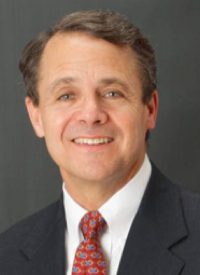
One of the primary justifications for the welfare state comes from Christians. They say that the welfare state demonstrates the willingness of the American people to fulfill God’s commandments with respect to human relationships.
The Ten Commandments include “Thou shalt honor thy mother and father.” In the New Testament, Christ tells us that the second-greatest commandment is “Thou shalt love thy neighbor as thyself.” God exhorts people to show compassion and care toward their fellow man, especially those in need.
Social Security and Medicare, it is said, demonstrate the willingness of Americans to honor their parents and other elderly people with retirement pay and free health care. Medicaid, public housing, food stamps, and education grants show the care and compassion that Americans have toward the poor. The welfare state in general, many Christians hold, shows that Americans are a good, caring, compassionate people, people who are fulfilling God’s will.
Actually, however, it’s the exact opposite. In actuality, the welfare state constitutes a rebuke of God. Here, in a nutshell, is the message that Christian statists give to God with their embrace of the welfare state:
Lord, we understand how You want us to behave toward our fellow man, including our parents, the poor, and others in need. You want us to show compassion and care toward such people. You want us to lend a helpful hand to them.
But the problem, Lord, is that You made a big mistake when You vested mankind with free will. Don’t feel bad about that, Lord. Everybody makes mistakes.
When You gave people the great gift of free will, You obviously believed that people would use their freedom to choose rightly and correctly. Such has not turned out to be the case, however. If people were free to decide for themselves whether to honor their mother and father — to care for them in sickness or old age — the discomforting truth is that most of them would say no. The same goes for helping the poor and others in need. People are just too selfish, Lord. You should never have trusted them with so much freedom.
But don’t worry, Lord, because we have corrected Your mistake. We have constructed a system in which everyone is forced to participate, a system in which people are mandated to help the elderly, the poor, and others in need. It’s called the welfare state.
The beauty of our system, Lord, is that, unlike your way, individual choice is removed from the equation. If someone refuses to pay his income taxes or Social Security taxes, both of which fund the welfare state, he goes to jail.
In that way everyone is forced to participate. Under the welfare state, everyone has been made good, caring, and compassionate. We are pleased to tell You that we figured out a way to avoid the horrible consequences of Your gift of free will. God bless America!
But God’s way isn’t founded on force or compulsion but instead on freedom of choice and exercise of conscience. By vesting man with free will, God wanted people to have the right to reject their neighbor and even Him. He understands that the essence of free will entails, by necessity, the right to say no.
Thus, while God tells us what He expects of us with respect to compassion, care, and charity, He does not force us to obey. He leaves the choice up to us. His process is a natural one, one based on freedom of choice and voluntary action.
Do some people choose the wrong way under God’s system? Of course. But that’s what freedom of choice is all about. Interesting enough, however, it is through that process — making the wrong choice and then grappling with one’s conscience — that people are often led in the correct direction, but without the application of any force.
Thus, the welfare state, with its system of coercion and compulsion, constitutes a denigration of God’s way. By denying people freedom of choice with respect to care, compassion, and charity toward others, the welfare state actually serves to mock God and His natural system of free will, voluntary choice, and exercise of conscience.
Jacob Hornberger is president of the Future of Freedom Foundation in Fairfax, Virginia.


